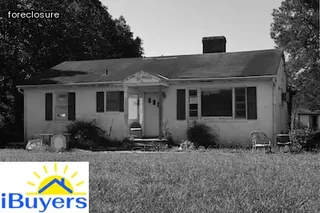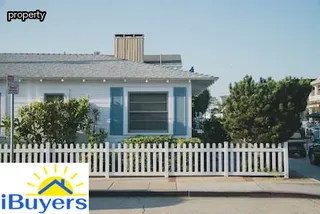When it comes to foreclosing on a home in Pennsylvania, there are certain steps that must be taken. It is important to understand the Pennsylvania foreclosure process, including the timeline and procedures for foreclosing on a home.
Knowing what to expect can help homeowners better prepare for the process and make informed decisions. In Pennsylvania, foreclosure is mainly handled through either judicial or non-judicial means.
Judicial foreclosure requires court proceedings, while non-judicial foreclosure allows lenders to take possession of the property without going through the court system. For both types of foreclosure, notices must be sent to all parties involved in order for the process to move forward.
Homeowners should also be aware of their right to reinstatement and redemption, which allows them up until a certain date before they are evicted from their home. Additionally, Pennsylvania offers various programs designed to help homeowners avoid foreclosure entirely or modify their loans so they can keep their homes.
Understanding these options is essential in making sure you take advantage of any resources available that may help with preventing or dealing with a foreclosure situation.

For homeowners in Pennsylvania facing foreclosure, it is important to know that there are pre-foreclosure options available that can be used to avoid the process altogether. These may include applying for a loan modification, which could reduce monthly payments and make them more manageable.
In addition, forbearance or repayment plans can be used to temporarily suspend or reduce payments while allowing the homeowner to stay in the home, as well as deed in lieu of foreclosure arrangements where the homeowner voluntarily transfers ownership of their home back to the lender. A short sale is also an option where a lender agrees to accept less than what is owed on a mortgage in order to avoid foreclosure.
Homeowners who are struggling should reach out to their lender first and discuss possible solutions before considering foreclosure proceedings.
The Homeowner's Emergency Mortgage Assistance Program (HEMAP) in Pennsylvania provides foreclosure relief to eligible homeowners facing financial hardship. To file, you must complete the HEMAP application and provide evidence of your income, expenses, debts, assets and credit report.
Once approved for assistance, the program will contact your mortgage servicer to negotiate a payment plan and make an initial payment on your behalf. If you are unable to continue making payments on your own, the program can step in and make additional payments until your loan is brought current.
Additionally, HEMAP can provide up to $60,000 in emergency loan funds if needed. If you are struggling to keep up with mortgage payments due to a job loss or medical emergency and feel like foreclosing is imminent, filing for HEMAP may be the best option for you.

It is important to stay informed on foreclosure regulations in Pennsylvania to ensure that the foreclosing process on a home goes smoothly. By understanding the laws and regulations around foreclosure, homeowners can protect their rights and avoid potential mistakes.
There are many resources available online, such as websites from the Pennsylvania Department of Banking and Securities or a local attorney experienced with foreclosure law. Additionally, it may be beneficial to attend free seminars or workshops offered by non-profit organizations or contact a HUD-approved housing counseling agency for guidance.
It is important to note that Pennsylvania has two types of foreclosures: judicial and nonjudicial. The type of foreclosure depends on the homeowner’s mortgage agreement and state law, so homeowners should consult with an attorney who specializes in residential foreclosures for more information.
Furthermore, knowing the timeline for a foreclosure can help homeowners prepare for each step of the process. In most cases, after an initial notice is sent from the lender, there will be an auction and then a final judgment.
Understanding all aspects of the foreclosing process in Pennsylvania can help prevent surprises along the way.
The process of foreclosing on a home in Pennsylvania can be lengthy, taking anywhere from three to eighteen months. The exact length of the foreclosure process will vary depending on the specific details of the foreclosure, such as the type of loan, the lender's policies, and any existing state laws.
A key factor in determining how long it takes to complete a foreclosure is whether or not the homeowner responds to their lender's requests. If they do not respond, the process may take longer.
Additionally, lenders must provide homeowners with an opportunity to bring their mortgage current before initiating a foreclosure action. Once all required notices have been provided and no resolution has been reached between borrower and lender, then a court hearing will be scheduled.
After this hearing has taken place, a final judgment will be issued before the foreclosure sale date is set. It is important for homeowners to understand their rights throughout this entire process and seek legal counsel if needed.

When facing foreclosure in Pennsylvania, one of the best ways to protect your home is through bankruptcy consideration. It’s important to understand that filing for bankruptcy does not guarantee that you will be able to keep your home, but it can provide the opportunity for a fresh start financially.
A Chapter 7 bankruptcy, in particular, may help homeowners by eliminating some of their debt and allowing them to pay off any remaining mortgage balance on their current home with a more manageable payment plan. Chapter 13 bankruptcies also offer the chance for homeowners to retain ownership of their homes by giving them additional time to catch up on missed mortgage payments.
Regardless of which option you choose, consulting an experienced bankruptcy attorney can help ensure that all paperwork is properly filled out and filed correctly. With the right guidance and support, it may be possible to save your home from foreclosure and get back on track financially.
When determining the best way to stop a foreclosure in Pennsylvania, it is important to consider both the pros and cons of filing for bankruptcy. Filing for bankruptcy can provide a debtor with an immediate protection from creditors, allowing them additional time to catch up on payments or renegotiate loan terms.
It also offers debtors a chance to discharge certain debts while preserving most of their assets. However, there are some drawbacks to filing for bankruptcy as well.
While it can provide immediate relief, it will have a long-term negative effect on credit score, making it difficult to obtain credit in the future. Additionally, a debtor may still be responsible for paying off secured debts such as mortgages and car loans even after filing for bankruptcy.
Ultimately, the decision of whether or not to file for bankruptcy should depend on each individual’s unique financial situation.

In Pennsylvania, foreclosure is a legal process that begins when a homeowner defaults on their mortgage payments. As part of the foreclosure process, homeowners have certain rights, known as redemption rights, which can help them avoid losing their home. Understanding these redemption rights is essential for any homeowner in Pennsylvania facing foreclosure.
To begin with, it's important to understand that in Pennsylvania there are two types of foreclosures: judicial and non-judicial. In a judicial foreclosure, a court will oversee the process while in a non-judicial foreclosure the lender will proceed without court oversight. Redemption rights vary depending upon whether it is a judicial or non-judicial foreclosure.
With a judicial foreclosure, the homeowner has six months to redeem the property by either paying off the loan amount or negotiating with the lender to modify their loan terms so they can stay in their home. With a non-judicial foreclosure, homeowners must act quickly and have only 21 days from when the Notice of Sale is recorded to redeem their property. During this 21 day period, homeowners should determine whether they can pay off the entire loan amount or negotiate some sort of repayment plan that works for both parties.
Lastly, if all else fails and homeowners do not qualify for any type of payment plan or cannot pay off their loan in full within 21 days, they may be able to sell their home before it goes into foreclosure. It is important to know exactly what your redemption rights are so you can take action immediately and explore all your options before it’s too late.
Stopping a foreclosure sale in Pennsylvania requires a few steps. Understanding the foreclosure process is the first step, as it will help you know what to expect and how to prepare.
Knowing your rights is essential, as they will vary based on the type of loan you have and the laws in your state. You should contact your lender right away to discuss your options, such as loan modification or other methods of bringing your payments current.
If you can't reach an agreement with them, filing for bankruptcy may be an option for stopping or delaying a foreclosure sale. Seeking legal advice from an experienced attorney may also be beneficial in understanding all of the potential options available to you under state law and how best to proceed with the situation.
It's important to take action quickly in order to give yourself more time to find a solution and potentially save your home from foreclosure.

In Pennsylvania, the pre-foreclosure period is a critical stage of the foreclosure process. It is during this time that homeowners must take steps to prevent their home from being foreclosed upon.
In order to understand what happens during the pre-foreclosure period in PA, it is important to first understand the timeline for foreclosing on a home in Pennsylvania. The pre-foreclosure period typically begins when the homeowner receives a notice of default and continues until a sheriff's sale of the home takes place.
During this time, homeowners will receive more notices from their lender about their delinquency and may have an opportunity to negotiate an alternate repayment plan with their lender or seek out legal assistance. In addition, mortgage lenders in Pennsylvania must file a complaint in court and obtain a judgment if they wish to proceed with foreclosure proceedings.
This process can take several weeks or months depending on how quickly homeowners respond to the notification and court filings. Homeowners may also be able to pursue other options such as short sales or deed-in-lieu agreements during this time.
It is important that borrowers understand all of their options before deciding how to proceed once they receive notification of default from their lender so they can make informed decisions that are best for them.
Facing foreclosure in Pennsylvania can be a stressful and intimidating time for homeowners, but there are strategies to help them remain in their homes. Pre-foreclosure involves being proactive, creating a plan of action, and making sure that all options are explored.
Homeowners who find themselves at risk of foreclosure should first reach out to their mortgage lender for assistance. Loan modification, refinancing, forbearance, and repayment plans may be available to help reduce the burden of payments.
Additionally, homeowners may be able to take advantage of government programs in Pennsylvania such as the Hardest Hit Fund or the Homeowner's Emergency Mortgage Assistance Program (HEMAP). It is important to remember that every situation is unique and consulting with professionals such as attorneys or HUD-approved housing counselors can provide helpful advice on how best to tackle the issue of foreclosure.

When faced with the prospect of foreclosure in Pennsylvania, it is important to understand your legal rights and strategies for delaying the process. First, a homeowner should contact their lender to discuss their options and negotiate repayment plans.
If an agreement cannot be reached, then it is essential to review all available documentation and paperwork from the lender related to the loan. An attorney can help homeowners understand their rights and any potential violations of the loan agreement.
It may also be possible to challenge the foreclosure on procedural grounds such as missed deadlines or incorrect paperwork by filing a motion with the court. Additionally, a homeowner could seek help from counseling services or other state programs that offer financial assistance or restructure terms.
Homeowners can also explore other loan modification options like forbearance or principal reduction which could potentially allow them to remain in their home while still meeting their obligations. Taking all these steps can greatly improve a homeowner's chances of avoiding foreclosure and finding successful resolution with their lender.
Foreclosures in Pennsylvania can be an emotionally and financially taxing experience for homeowners. Loan modifications can often delay or even stop a PA foreclosure, as they allow borrowers to make payments on their loan that are more manageable for them and represent a more sustainable solution than foreclosure.
There are several methods of loan modification available, including forbearance plans, repayment plans, principal reductions, and loan extensions. The process of modifying a mortgage loan can take several weeks to complete, so it is important to act quickly.
When applying for loan modification, it is essential that the homeowner provide accurate information so that the lender can determine whether they qualify for a modification and what kind of payment plan might work best for them and their situation. Ultimately, loan modifications may not always be successful in preventing foreclosure but they offer a chance to work with lenders to find solutions that are beneficial for both parties.

When facing foreclosure, it can be tempting to think that your only option is to accept it and move on. However, negotiations with your lender may provide an alternative solution.
While the process of negotiating with a bank can be daunting, there are actions you can take to help prevent foreclosure. First, reach out to your lender as soon as possible to discuss options for helping you stay in the home.
Providing the lender with a financial hardship letter detailing why you have fallen behind on payments can be beneficial. You may also negotiate a repayment plan or loan modification that could make it easier for you to stay in the home.
Additionally, speaking directly with a supervisor or manager at your lender’s office may increase your chances of securing an agreement that works for both parties. If this approach fails, other strategies such as applying for forbearance, mediation or other legal options should be considered before giving up and allowing the property to foreclose.
Although negotiating with a lender can take time and effort, understanding the process and taking proactive steps towards finding solutions can help save your home from foreclosure.
Understanding when and how the sheriff's sale occurs is an important step for anyone facing foreclosure in Pennsylvania. The timing of the sale depends on how long a homeowner has been delinquent on their mortgage payments, as well as other factors such as the local court's process timeline.
Generally speaking, lenders must file a complaint with the court to start the foreclosure process. After this, an official notice will be sent to the homeowner and a date scheduled for the sheriff's sale.
Once that date arrives, there are typically two phases. First, a public auction is held where bidders can offer cash or credit bids to purchase the property.
If no successful bid is made, then it is considered "struck off" to the lender who initiated the proceedings. The second phase involves filing a deed transferring ownership of the home from the former homeowner to its new owner.
While it is possible for homeowners to reclaim their property after foreclosure proceedings have begun by paying off any back payments owed plus costs and fees associated with reinstating their loan, it is important to remember that understanding when and how sheriff’s sales occur can be critical in helping them make informed decisions about their financial future.

After a home in Pennsylvania is foreclosed on, the homeowner may still have options available to them. If they are able to pay the outstanding loan balance, they may be able to reinstate their mortgage and keep their home.
In addition, the homeowner may qualify for a loan modification that would change the terms of their loan agreement and make it easier for them to meet the payments. If neither of these options are viable, then the homeowner can pursue a deed in lieu of foreclosure, which allows them to voluntarily transfer ownership back to the lender.
Finally, if all else fails, they may qualify for a short sale, which will allow them to sell their home at market value with any remaining balance forgiven by their lender.
Navigating federal laws that may help prevent or delay a Pennsylvania foreclosure can be a daunting task, especially for those who are unfamiliar with the process. However, there are several avenues available to homeowners who are at risk of foreclosure, such as loan modification programs and consumer protection measures.
The Making Home Affordable Program (MHA) is one of the most popular options for preventing or delaying a foreclosure in PA, providing assistance to eligible borrowers through reduced interest rates, extended loan terms, and other solutions. Homeowners should also be aware of their rights under the Servicemembers Civil Relief Act (SCRA), which offers additional protections to members of the military facing financial hardship from mortgage payments.
Additionally, the Fair Debt Collection Practices Act limits the activities of debt collectors and prohibits certain forms of harassment. Homeowners facing foreclosure in Pennsylvania can take advantage of these federal laws by speaking to a qualified attorney or housing counselor.

When facing a foreclosure in Pennsylvania, it is important to understand the process and the steps involved. Getting professional help can be beneficial to ensure that all the paperwork is properly filled out and filed correctly.
It is important to know the rights of homeowners during this process as well as understand the timeline for foreclosure proceedings. The first step should be to contact a lawyer who specializes in foreclosure proceedings in Pennsylvania as they will be able to provide guidance on how best to proceed.
A qualified attorney will also be able to provide advice on how to negotiate with lenders, review loan documents, and explore options such as loan modifications or other types of debt relief. In addition, it is important to research programs that offer assistance such as the Emergency Mortgage Assistance Program (EMAP) which can provide funds for mortgage payments or other housing expenses during the foreclosure process.
Understanding all of these elements can help make sure that homeowners are taking the necessary steps for a successful resolution when facing foreclosure in Pennsylvania.
In Pennsylvania, the foreclosure process can take anywhere from two to three months. During this time, a homeowner will receive notices from their mortgage lender that they are in default on their loan and must make payments or risk entering foreclosure.
The lender will then file a complaint against the homeowner and send notice of the complaint to the local court. After filing, it can take up to two months for the court to schedule a hearing date.
Upon receiving notification of the hearing date, homeowners have an additional 10 days to respond before a public sale date is set. If no response is made within the 10-day period, a sheriff sale will be held and the home will officially enter foreclosure.
Foreclosure in Pennsylvania usually takes around 90 days from start to finish but can vary depending on various factors such as court delays or payment negotiations with lenders.

It is possible to stop a foreclosure in Pennsylvania, but it is important to recognize the complexities of the process. First, you should know that Pennsylvania law grants certain rights and protections to homeowners facing foreclosure.
By understanding these rights and protections and taking advantage of them, you may be able to prevent or delay a foreclosure. Additionally, you should contact an experienced attorney who can help you navigate the legal procedures involved in stopping a foreclosure.
Finally, consider consulting with a housing counselor or financial advisor who can help you better understand your options for preventing or delaying a foreclosure in PA. With the right advice and guidance, you may be able to stop foreclosure proceedings in Pennsylvania before it’s too late.
When it comes to foreclosing on a home in Pennsylvania, understanding how many months behind in your mortgage payments you must be before the foreclosure process begins is key.
According to state law, a homeowner must be at least three months delinquent on their mortgage payments before they can enter into the foreclosure process.
This means that if your mortgage payment is due on the first of each month, you will need to miss at least three consecutive payments for the lender to initiate foreclosure proceedings.
If you are more than three months behind in your mortgage payments, it is important to contact your lender as soon as possible and work out some type of resolution.
In Pennsylvania, the timeline for moving out after a sheriff sale is typically 30 days. After the sale is confirmed by the court, the new owner of the home has to give you an official notice to vacate within five (5) days.
The notice will specify when you must leave the property – usually no more than 30 days from receipt of the notice. If you do not move out by this date, your new landlord may pursue legal action against you.
It is important to be aware that if you are facing foreclosure in Pennsylvania, your lender or mortgage servicer might not wait until after the sheriff sale before beginning eviction proceedings against you. You should contact an experienced real estate attorney as soon as possible to discuss your options.
A: The foreclosure process typically takes between three to six months in Pennsylvania when lawyers are representing both parties.
A: The timeframe for the lien foreclosure and ejectment process in Pennsylvania, including any Conciliation Court proceedings, is generally 6-12 months.
A: The foreclosure process in Pennsylvania can typically take anywhere from three to nine months depending on the complexity of the case and whether lawyers are representing both the plaintiff and claimants.
A: The length of time it takes for a foreclosure process to complete in Pennsylvania depends on the complexity of the case. Generally, the timeline can range from several months to over a year.
A: The duration of a foreclosure process in Pennsylvania depends on the complexity of the situation, including how many parties are involved and how quickly they respond to each step. Generally, however, the timeline for a foreclosure can range from 90-180 days in Pennsylvania.
A: The foreclosure process in Pennsylvania can take anywhere from several months to several years depending on the complexity of the case. Generally, the foreclosure process begins with filing a complaint against the homeowner in court and ends with either an agreement between the parties or a sale of the property at a sheriff's sale. The length of time for each step in the process will depend on factors such as whether there is an active consumer credit diversion program and if deficiency judgments are sought by either party.